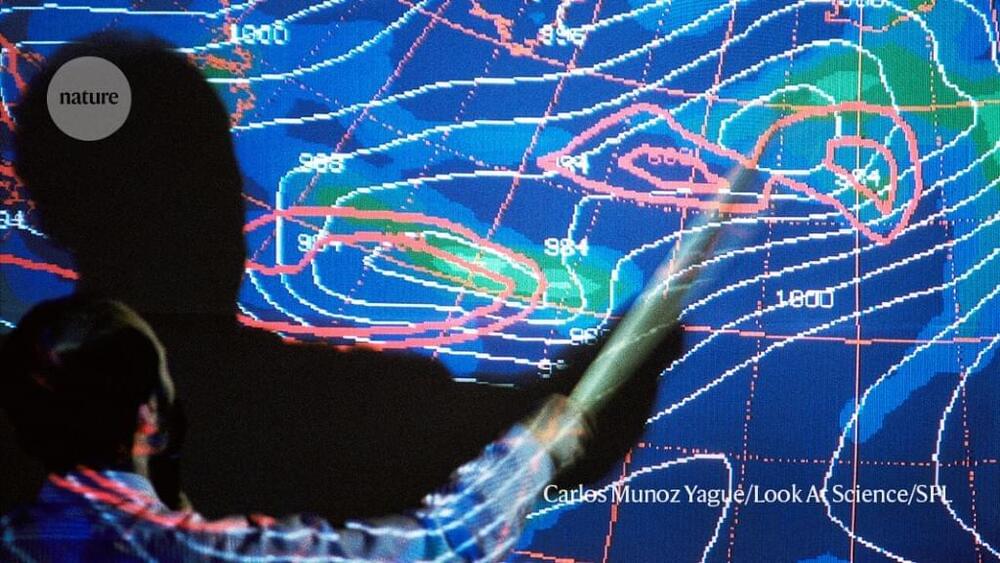LEVF are proud of what we’ve achieved in our first year of operation, and we hope you’ll agree. Click through for a summary of our work so far, as well as details on our 2024 plans — and please help us to make those plans a reality, by contributing to our end-of-year fundraiser!
Category: futurism – Page 358


Not Everyone Agreed with Albert Einstein—Including Children, Schrödinger, and Heisenberg
Over the years, Einstein received a lot of letters from children. “I am a little girl of six,” one announced in large letters drawn haphazardly across the full width of the writing paper. “I saw your picture in the paper. I think you ought to have a haircut, so you can look better.” Having given her advice, the girl, with model formality, signed it, “Cordially yours, Ann.”
“I have a problem I would like solved,” wrote Anna Louise of Falls Church, Virginia. “I would like to know how color gets into a bird’s feather.” Dear Mr. Einstein was asked the age of Earth and whether life could exist without the sun (to which he replied that it very much could not). One child asked him whether all geniuses were bound to go insane. Frank, from Bristol, Pennsylvania, asked what was beyond the sky—“My mother said you could tell me.”
Kenneth, from Asheboro, North Carolina, was more philosophical: “We would like to know, if nobody is around and a tree falls, would there be a sound, and why.” Similarly, Peter, from Chelsea, Massachusetts, drove straight to the heart of human inquiry: “I would appreciate it very much if you could tell me what Time is, what the soul is, and what the heavens are.”

Is the Great Resignation over? Why bosses are leaving at record rates
The Great Resignation may be over for most workers — but for some top honchos, it’s only just begun.
The number of chief executive resignations this year hit a record high, according to a recent report by Challenger, Gray and Christmas Inc.
Over 1,400 CEOs have stepped down from their positions between January to September, marking an almost 50% rise from the 969 departures over the same period last year. The career consultancy firm noted that the figure is the highest since it started compiling data in 2002.



Ice Core Insights: A Comprehensive Look at Phytoplankton Trends Over 800 Years
A recent study published in the Proceedings of the National Academy of Sciences examines how marine phytoplankton throughout the North Atlantic Ocean has maintained its stability and numbers based on ice cores dating as far back as 800 years, which contradicts a 2019 study that concluded marine phytoplankton was on the decline by approximately 10 percent. The reason ice cores were examined was due to the methanesulfonic acid (MSA) deposits that fall from the sky and are the airborne products of phytoplankton, with the MSA initially starting off as dimethyl sulfide that is a byproduct of phytoplankton. This study was also presented at the AGU Fall Meeting in December 2022.
“Greenland ice cores show a decline in MSA concentrations over the industrial era, which was concluded to be a sign of declining primary productivity in the North Atlantic,” said Ursula Jongebloed, who is a PhD student in atmospheric sciences at the University of Washington (UW) and lead author of the study. “But our study of sulfate in a Greenland ice core shows that MSA alone can’t tell us the whole story when it comes to primary productivity.”

Sam Altman: GPT-5 underway and will substantially differ from GPT-4
OpenAI is seeking more funds from Microsoft to build future models both companies can profit from.
Justin Sullivan/Getty.
Since its blockbuster product, ChatGPT, which came out in November last year, OpenAI has released improved versions of GPT, the AI model that powered the conversational chatbot. Its most recent iteration, GPT Turbo, offers a faster and cost-effective way to use GPT-4.

